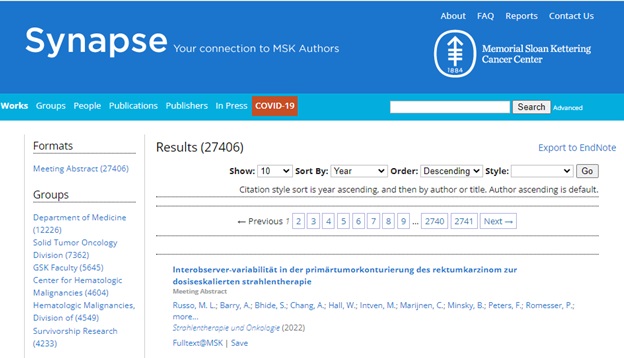There are a few approaches that you can take for identifying upcoming conferences that may be appropriate venues for sharing your preliminary research results (as a peer-reviewed paper or poster presentation).
- One way is to search a database that contains information about the conferences/congresses themselves. Another way is to identify professional associations/organizations related to your discipline/field that would likely be responsible for organizing professional meetings, and then search the website of these organizations to look for announcements of their upcoming events and professional development opportunities.
For example, you can use a database like PubsHub that indexes Congresses and Associations:
PubsHub: https://libguides.mskcc.org/pubshub
Many people are familiar with PubsHub as they may have used it when trying to identify good journal contenders for manuscript submission. It’s a great tool to use for that purpose – it even has functionality that lets you easily compare the features of two different journal titles – but there are also parts of this database dedicated to Congresses and Associations.

- Another effective way to find this information is to search on your favorite topic in a scholarly literature database that indexes conference proceedings, limit your search results to the Meeting Abstracts/Conference Proceedings publication type, and then note the names of the conferences where these meeting abstracts were submitted and accepted.
For example, you can search a database that indexes conference proceedings of interest and then look up the conference names included in the citations that are returned (from the citation record/published meeting abstracts records that were presented on topics related to yours) using another search tool (like Google) to investigate if those conferences/associations will soon be accepting abstract submissions for their next conference.
Resources available via the MSK Library that index conference proceedings/meeting abstracts include:
- Web of Science – https://libguides.mskcc.org/webofscience
- Northern Light Life Sciences Conference Abstracts – https://libguides.mskcc.org/northernlight
- Synapse – https://synapse.mskcc.org/synapse/works

Questions? Ask Us at the MSK Library.
